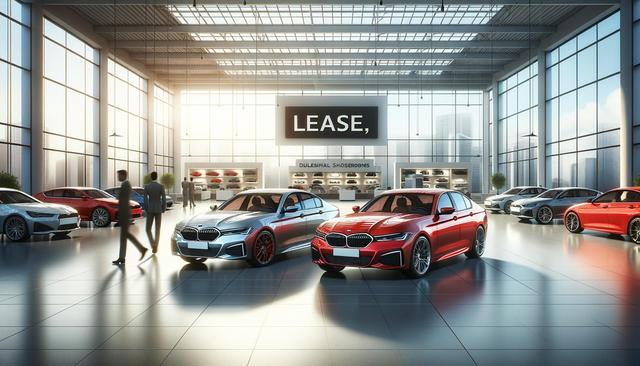Understanding the Basics of Car Leasing
Leasing a car provides a flexible alternative to traditional vehicle ownership. Unlike purchasing a car outright or financing it through a long-term loan, leasing involves paying for the depreciation of the vehicle during the time you drive it. This often results in lower monthly payments compared to buying. You commit to using the vehicle for a specific period—typically between 24 and 48 months—and within a set mileage limit. At the end of the lease term, you generally have the option to return the car, buy it at a predetermined value, or enter into a new lease agreement. This structure appeals to many who enjoy driving newer vehicles more frequently without the long-term responsibility of ownership.
When considering a Hyundai for your next vehicle, leasing can be a compelling choice. Hyundai models are known for their blend of comfort, efficiency, and advanced features, making them suitable for a wide range of drivers. Leasing allows you to enjoy these benefits with reduced upfront costs and predictable monthly expenses. For those who appreciate staying up to date with the latest technology and safety innovations, a lease makes it easier to switch to a newer model every few years.
Benefits of Leasing a Hyundai
Leasing a Hyundai can offer several practical advantages, especially if your driving habits align with the terms of a lease. One of the key benefits is the opportunity to drive a newer vehicle more often, without the need to deal with selling or trading in an older car. Here are a few notable advantages:
- Lower Monthly Payments: Lease payments are generally lower than loan payments for the same vehicle.
- Warranty Coverage: Most lease terms align with the manufacturer’s warranty, reducing out-of-pocket maintenance expenses.
- Flexible Terms: Lease agreements can often be customized to your driving needs, including term length and mileage limits.
For drivers who prefer a worry-free experience and want to avoid long-term commitment, leasing can be a suitable option. In addition, leasing may offer tax benefits in certain cases, particularly for business use. If you prioritize budget-friendly access to a dependable and feature-rich vehicle, exploring lease options could be a smart route.
Choosing the Right Lease Terms
Selecting the right lease terms is essential to ensure the arrangement aligns with your lifestyle and budget. Two primary factors to consider are the lease duration and the allowed mileage. Most leases offer mileage options ranging from 10,000 to 15,000 miles per year, which accommodate typical commuting and occasional travel. However, if you expect higher usage, it may be worth negotiating a higher mileage limit upfront to avoid excess mileage charges later.
When choosing your lease terms, consider these points:
- Driving Habits: Estimate your average annual mileage to choose an appropriate limit.
- Length of Term: Shorter leases offer more frequent vehicle upgrades, while longer leases may lower monthly payments.
- End-of-Lease Options: Understand whether you can purchase the vehicle, trade it in, or simply return it at lease-end.
It’s also prudent to review the lease agreement carefully for details such as wear-and-tear guidelines, termination fees, and maintenance responsibilities. Being informed at the outset helps avoid surprises and ensures your lease experience remains smooth and transparent.
Comparing Leasing vs. Buying
Deciding between leasing and buying depends largely on your financial goals and personal preferences. Leasing is often favored by those who value lower monthly payments and regular vehicle upgrades, while buying may be better suited for individuals who plan to keep their car for many years. Ownership allows for unlimited mileage and the freedom to modify the vehicle as desired, but it comes with higher upfront costs and long-term maintenance responsibilities.
Here’s a quick comparison to help clarify the differences:
- Leasing: Lower monthly payments, limited mileage, no ownership, frequent upgrades.
- Buying: Higher monthly payments, unlimited mileage, full ownership, long-term value.
Considering a Hyundai for your next vehicle could influence this decision. If you’re drawn to the brand’s reputation for efficiency, safety, and modern design, leasing might allow you to enjoy these features without committing to long-term ownership. Meanwhile, if you prefer building equity in a vehicle and customizing it to your liking, purchasing may be the better path.
Tips for a Successful Lease Experience
To make the most of your car lease, preparation and understanding are key. Start by researching models that fit your needs and budget. Then, compare lease offers from multiple sources to identify competitive terms. Be sure to inquire about any promotions or incentives that may apply. When reviewing lease agreements, pay close attention to the fine print, especially regarding mileage limits, maintenance expectations, and end-of-lease procedures.
Here are a few tips to help ensure a smooth leasing experience:
- Keep Mileage in Check: Monitor your driving to avoid excess mileage fees.
- Maintain the Vehicle: Follow scheduled maintenance and keep the car in good condition to avoid wear-and-tear charges.
- Understand Return Policies: Know what to expect when returning the vehicle at the end of the lease term.
Additionally, if you find yourself enjoying your leased Hyundai and want to keep it, many lease agreements include a purchase option at the end of the term. This can be a cost-effective way to transition from leasing to ownership without the pressure of buying upfront.
Conclusion: Is Leasing Right for You?
Leasing offers a flexible and financially accessible way to drive a modern, reliable vehicle without the long-term commitment of ownership. For those considering a Hyundai, the combination of advanced features, dependable performance, and leasing flexibility can be especially appealing. Whether you’re a commuter, a small family, or someone who simply enjoys the experience of driving a newer car, leasing provides the opportunity to match your vehicle to your lifestyle and budget.
By carefully selecting your lease terms and understanding your driving habits, you can enjoy all the benefits a lease has to offer. It’s a practical solution for many drivers and a worthwhile option to consider when planning your next vehicle choice.




Leave a Reply